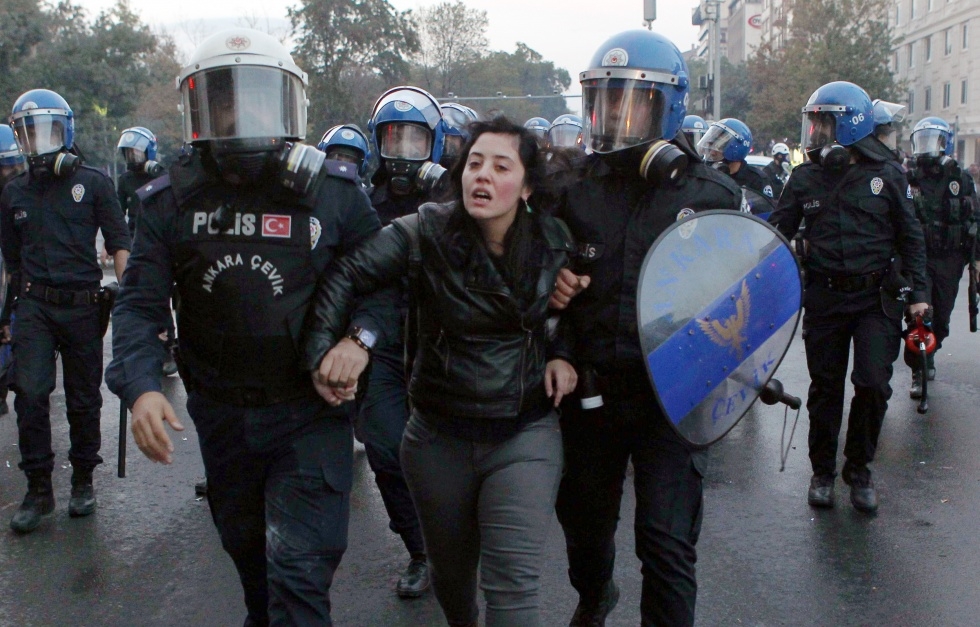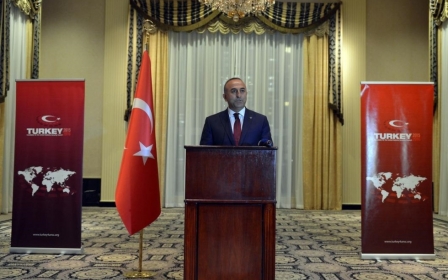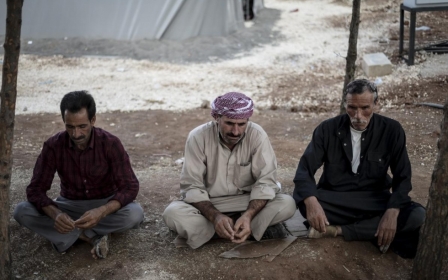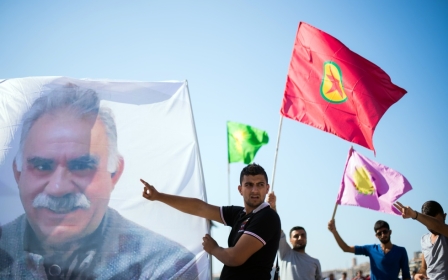Draft security bill could give Turkish police sweeping powers

A draft bill has been introduced by Turkey’s ruling Justice and Development Party (AKP) that will give the police and prosecutors sweeping new powers, leading commentators to bemoan the return of the “police state".
The homeland security reform bill, submitted to parliament late on Tuesday, will give police new powers in search, seizure, detention and arrests, while restricting the rights of suspects and their attorneys to acquire the details of legal proceedings brought against them during an investigation.
It would also make it possible for the government to seize the assets of people and groups convicted of threatening Turkey’s constitution or trying to overthrow the government.
Bulent Arinc, one of Turkey’s deputy prime ministers, said the legislation would “give the upper hand to the police" and "more space to resort to new tools and measures" in the face of "widespread violence” referring to continuing demonstrations by Kurdish groups.
The proposed law comes after widespread demonstrations in Turkey by Kurds against what they feel is the government’s inaction over – and even alleged complicity in – fighting between the Islamic State and the Kurdistan Workers Party (PKK) in the Syrian border town of Kobane.
Some of the demonstrations have devolved into violence among different Kurdish groups and also between Kurdish groups and the Turkish police. Twenty of Turkey's provinces witnessed violent episodes in recent weeks, sparked by the situation in Kobane, with a total number of 1,419 incidents reported.
So far, at least 37 people are thought to have died in the clashes. Most casualties have occurred between supporters of the outlawed PKK and a group reportedly belonging to the Islamist Kurdish political party, called the Free Cause Party, the Turkish Daily Sabah reported.
Turkish law makers were split over the proposed bill.
Ozcan Yeniceri, a Nationalist Movement Party (MHP) MP warned that, should the bill be passed, “police will do whatever they want, as if a martial law has been imposed.”
“Turkey will become a police state," he added.
Idris Baluken of the pro-Kurdish People's Democratic Party (HDP) agreed, saying that it would only heighten tensions.
"This is like throwing gasoline on a fire... at a time when so many children are being killed by police on the streets," he said. "From now on, the police will resort to not only using shields but also guns, with an authority to kill."
But Numan Kurtulmus, another deputy prime minister, dismissed the criticism, arguing that the country was in no danger of returning to the days of military rule.
"After taking so many decisive steps towards democracy for years, Turkey cannot take any steps toward becoming a police state again," he said.
Today’s Zaman, an English-language newspaper known to be supportive of the controversial anti-AKP Gulen Movement, described the bill as “a move that will take Turkey back to the 1990s when emergency rule had been widely applied across the country with a widespread violation of rights and freedoms.”
Öztürk Türkdoğan, the chairman of Turkey's Human Rights Association, told Today’s Zaman that Turkey’s constitutional court might throw out the legislation.
"These ill-intentioned laws may target the government and its members in the future after they lose power. No one can remain in power forever,” he said.
Since the 1980’s Turkey has experienced, to varying degrees, states of martial law and military governance which sharply stifled freedom of expression and political dissent, particularly against far-left, Islamist and pro-Kurdish groups.
Since the AKP’s transition to power in 2002 – and the high profile arrest and prosecution of a number of figures in the coup-prone military – it has generally been thought that Turkey’s authoritarian days were behind it.
But many critics of the government have accused the AKP government, under the leadership of now-President Recep Tayyip Erdogan, of becoming increasingly intolerant of dissent, particularly noting Turkey’s reputation for having the highest number of imprisoned journalists in the world.
Middle East Eye propose une couverture et une analyse indépendantes et incomparables du Moyen-Orient, de l’Afrique du Nord et d’autres régions du monde. Pour en savoir plus sur la reprise de ce contenu et les frais qui s’appliquent, veuillez remplir ce formulaire [en anglais]. Pour en savoir plus sur MEE, cliquez ici [en anglais].




